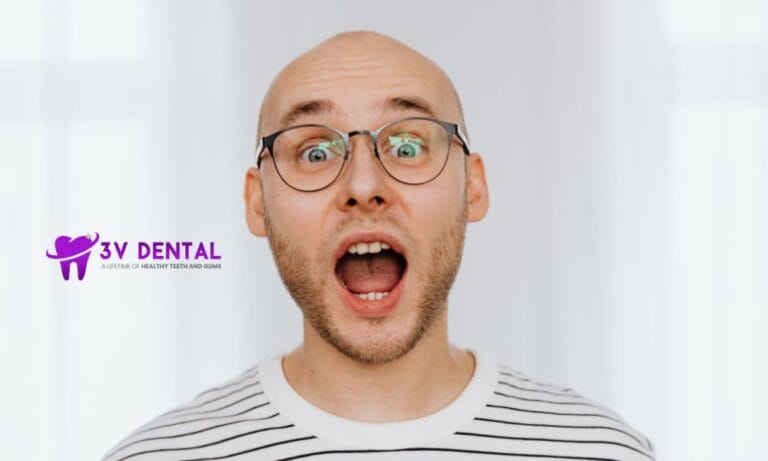If you’ve noticed an increase in saliva production lately, you’re not alone. Excess saliva, drooling, or a constant need to swallow can be uncomfortable and sometimes a little embarrassing. But why does this happen, and what can you do about it? In this blog post, we’ll dive into the reasons why your mouth might be producing so much saliva suddenly, explore potential causes, and offer some tips on how to manage it.
What Is Saliva and Why Is It Important?
Before we get into the causes of excess saliva, let’s talk about what saliva does. Saliva is a clear liquid produced by the salivary glands in your mouth. It plays a crucial role in keeping your mouth moist, starting the digestion process, and protecting your teeth from decay. Here are some of the key functions of saliva:
- Aids in Digestion: Saliva contains enzymes that help break down food, making it easier to swallow and digest.
- Protects Teeth: It neutralizes acids in the mouth, helping to prevent tooth decay.
- Keeps the Mouth Moist: Moisture from saliva keeps your mouth comfortable and helps you speak, chew, and swallow.
While saliva is essential, too much of it can be a problem. Excess saliva, also known as hypersalivation or sialorrhea, can lead to drooling or the constant need to swallow. So, why might your mouth be suddenly producing more saliva than usual?
Common Causes of Excess Saliva
There are several reasons why you might experience excess saliva or drooling. Some are temporary and harmless, while others may require medical attention. Here are some of the most common causes:
1. Dietary Changes
Did you recently change your diet or start eating more acidic foods? Foods like citrus fruits, spicy dishes, or sour candies can stimulate your salivary glands to produce more saliva. Even thinking about these foods can cause an increase in saliva, which is often referred to as the “mouth-watering” effect.
Solution:
- Limit your intake of highly acidic or spicy foods if they seem to be triggering excess saliva.
- Drink water after consuming these foods to help neutralize the acids and clear your mouth.
2. Nausea or Upset Stomach
Feeling queasy can also lead to an increase in saliva production. Your body might produce more saliva to prepare for vomiting, as it helps protect your mouth and throat from stomach acids.
Solution:
- Treat the underlying cause of nausea. Ginger tea or over-the-counter anti-nausea medication may help.
- If nausea persists, consult a healthcare provider to rule out any underlying conditions.
3. Pregnancy
Pregnant women often experience increased saliva production, especially during the first trimester. This can be due to hormonal changes or morning sickness, which might make the mouth produce more saliva to protect against stomach acid.
Solution:
- Small, frequent meals and staying hydrated can help manage excess saliva during pregnancy.
- Chewing sugar-free gum or sucking on sugarless candy can help you swallow more frequently, reducing the sensation of drooling.
4. Medications
Certain medications can cause hypersalivation as a side effect. Common culprits include drugs used to treat high blood pressure, antipsychotics, and certain antibiotics. If you’ve started a new medication recently, it could be responsible for the increase in drooling.
Solution:
- Talk to your doctor if you suspect your medication is causing excess saliva. They may be able to adjust your dose or switch you to a different drug.
- Never stop taking a prescribed medication without consulting your healthcare provider first.
5. Dental Issues or Oral Infections
Problems with your teeth, gums, or mouth can lead to hypersalivation. Dentures that don’t fit properly, cavities, gum disease, or oral infections may cause your body to produce more saliva as a response to irritation or discomfort.
Solution:
- Visit your dentist for a check-up to identify and treat any dental issues.
- Good oral hygiene, including brushing, flossing, and regular dental visits, can help prevent dental problems that lead to excess saliva.
6. Gastroesophageal Reflux Disease (GERD)
GERD, or acid reflux, is a condition where stomach acid travels back up into the esophagus, leading to a burning sensation. The body may produce more saliva to help neutralize the acid, which can result in drooling.
Solution:
- Lifestyle changes, such as avoiding large meals, eating slowly, and reducing acidic foods, can help manage GERD.
- Over-the-counter medications like antacids or proton pump inhibitors may also provide relief. Speak with a healthcare provider if symptoms persist.
7. Neurological Disorders
Excess saliva can sometimes be linked to neurological conditions, such as Parkinson’s disease, cerebral palsy, or ALS (amyotrophic lateral sclerosis). These disorders may affect the muscles and nerves that control swallowing, leading to drooling.
Solution:
- If you or someone you know is experiencing hypersalivation along with other symptoms, consult a healthcare provider for a thorough evaluation.
- Treatment options may include medications, therapy, or in some cases, surgical intervention to reduce saliva production.
When to See a Doctor About Excess Saliva
While temporary increases in saliva are usually not a cause for concern, there are times when you should seek medical advice. Consult a healthcare provider if:
- Excess saliva persists for more than a few weeks.
- You have difficulty swallowing.
- Drooling is accompanied by other symptoms, such as pain, difficulty breathing, or neurological changes.
- You are unable to identify a clear reason for the excess saliva.
How to Manage Excess Saliva at Home
In most cases, excess saliva isn’t dangerous, but it can be bothersome. Here are some tips on how to manage drooling and reduce hypersalivation at home:
- Stay Hydrated
- Drinking water throughout the day can help keep your mouth feeling balanced and prevent excess saliva from building up. Plus, it encourages swallowing, which helps reduce drooling.
- Practice Good Oral Hygiene
- Brushing and flossing regularly can help prevent dental issues that lead to excess saliva. Rinsing with an alcohol-free mouthwash can also keep your mouth fresh and clean.
- Chew Sugar-Free Gum
- Chewing gum can stimulate swallowing, which may help manage drooling. Make sure to choose sugar-free varieties to avoid increasing your risk of tooth decay.
- Avoid Triggers
- If you’ve identified specific foods or situations that cause your mouth to produce more saliva, try to avoid them or find alternatives that don’t have the same effect.
- Consider Speech Therapy
- For individuals with neurological conditions, speech therapy may help improve control over the muscles involved in swallowing, which can reduce drooling.
FAQs About Excess Saliva
1. Can stress cause excess saliva?
Yes, anxiety and stress can sometimes lead to hypersalivation. Stress may trigger the body’s “fight or flight” response, which can increase saliva production. Finding ways to manage stress, such as meditation, exercise, or speaking to a therapist, may help reduce symptoms.
2. Is excess saliva a sign of dehydration?
No, dehydration typically leads to a dry mouth, not excess saliva. However, if you’re experiencing hypersalivation, drinking more water may help your mouth feel more balanced and can encourage swallowing.
3. Why does my mouth water before I vomit?
Your body produces extra saliva before vomiting to protect your mouth and throat from the acids in your stomach. This is a natural response designed to minimize irritation and discomfort.
Conclusion
Excess saliva, drooling, or a sudden increase in saliva production can be annoying, but it’s often manageable. Whether it’s due to diet, medication, dental issues, or underlying health conditions, understanding the cause is the first step toward finding a solution.
If you’re struggling with hypersalivation and it’s affecting your daily life, don’t hesitate to seek advice from a healthcare provider. They can help you pinpoint the cause and recommend appropriate treatments, so you can get back to feeling comfortable and confident.
Dealing with excess saliva? Our dental experts are here to help. Schedule an appointment today and let us assist you in maintaining your best oral health.



